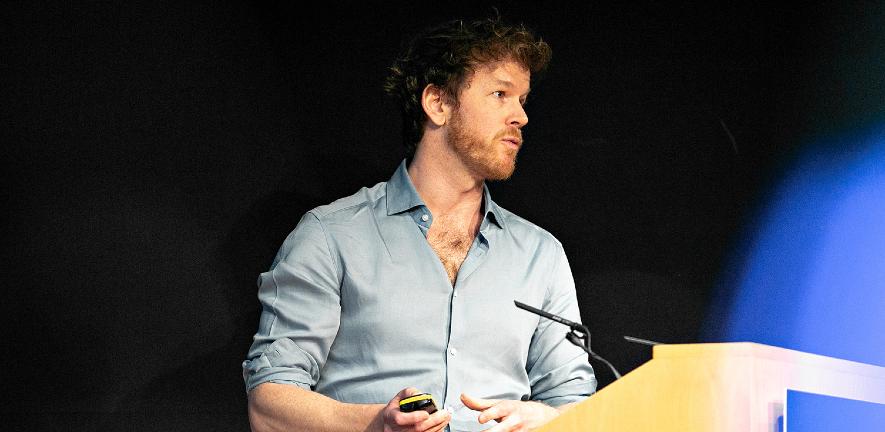
Submitted by Jane Durkin on Tue, 16/11/2021 - 12:36
Duncan Astle is a Programme Leader at the MRC Cognition and Brain Sciences Unit, University of Cambridge.
He leads the 4D Research Group, home to around 15 Early Career Researchers working in developmental cognitive neuroscience.
Their work draws upon education, cognition, neurophysiology and genetics with a particular interest in understanding neural systems in childhood, how they are linked with developmental disorder, and how they respond to intervention.
Duncan will be presenting on transdiagnostic approach to understanding cognitive difficulties in childhood at the Cambridge Language Sciences Annual Symposium on 23 November 2021.
I lead the 4D research group at the MRC Cognition and Brain Sciences Unit. The 4D’s stand for Development, Dynamics, Disorders and Data Science. The group is home to around 15 early career researchers working in developmental cognitive neuroscience.
Our research sets out to understand how people are all different from each other. As we develop during childhood large differences in cognition and brain organisation emerge. In some cases these differences can act as barriers to learning, or risk factors for mental health difficulties. I want to understand which differences are most important for these kinds of outcomes, and to understand how and when they emerge during childhood and adolescence.
My favourite part of the role is seeing lab members achieve their own goals. We have a large research group, and it to work for each member; everyone’s goals need to be integrated with our strategy. So when someone gets their PhD submitted and starts a postdoc, or gets the job in industry they always wanted, I find that incredibly rewarding.
We cover a broad programme of research and day-to-day team members could be doing any one of a number of things. This could be meeting a family who are visiting the Unit to take part in our research, visiting a school to help with data collection, coding analyses that allow us to better understand the brain, or disseminating that research with talks or papers for all sorts of different audiences.
‘Simulation’ is an aspect of our work that is particularly interesting me right now. We are building models that simulate how brains develop. That is yielding such incredible insight into how everyone’s brains change as we get older. It’s an exciting development in our work and I can’t wait to see what it tells us next.
I hope our research will lead to a gradual reshaping of who receives support and the kind of support they receive. Cognitive difficulties are common in childhood, and the approach to supporting them has been dominated by a static diagnostic framework. We would like to see that changed.
How does the theme of ‘Inclusion’, the topic of this year’s Symposium, relate to our work? The majority of research on children with neurodevelopmental difficulties is exclusive. Researchers tend to exclude children without a diagnosis, or who don’t fit the diagnostic standard. This influences the theories we develop, the interventions we design and the support someone receives. Our research has advocated for a more inclusive design for research, with different approaches to recruitment and alternative analytic tools. This has the potential to influence heavily both research and practice.
